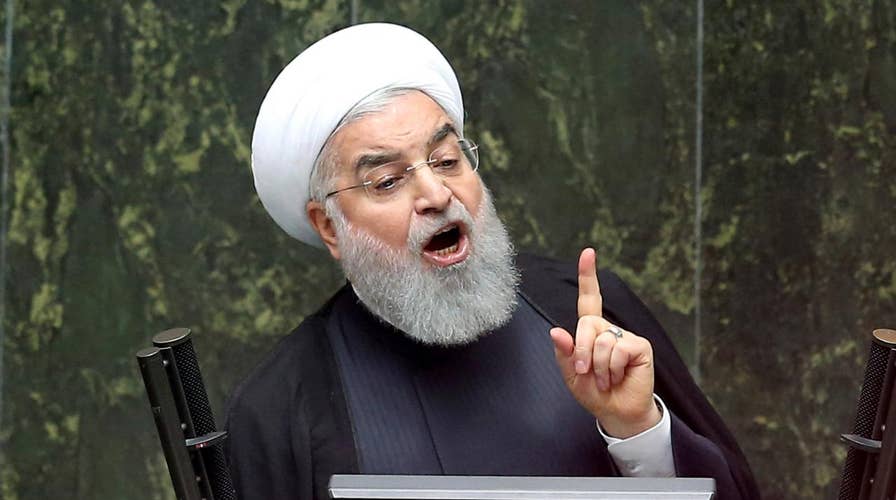White House announces return of US sanctions on Iran
Trump administration says new sanctions targeting Iran's economy are the toughest ever against the regime; Rich Edson reports from the State Department.
WASHINGTON – The Trump administration is targeting the “core areas of Iran’s economy” with what officials call the strongest sanctions ever imposed on Iran, effectively ending United States participation in the 2015 Iran nuclear agreement.
“It is aimed at depriving the regime of the revenues that it uses to spread death and destruction around the world,” said Secretary of State Mike Pompeo. “Our ultimate aim is to compel Iran to permanently abandon its well-documented outlaw activities and behave as a normal country.”
On Monday, the administration will fully restore the sanctions against Iran that the U.S. once lifted as part of the nuclear deal. This round targets Iran’s oil, banking and shipping sectors and will impact more than “700 individuals, entities, vessels, and aircraft,” according to the administration.
“Our maximum economic pressure campaign is designed to deny Iran the revenue it needs to support terrorism and missile proliferation and to bring them back to the negotiating table so the president can negotiate a much better deal,” said Brian Hook, the U.S. Special Representative for Iran. “We intend to seek a new deal with Iran that addressed the entire range of Iran’s threats to peace and security.”
President Trump announced in May the U.S. exit from the Iran nuclear agreement. Officials said international businesses have already withdrawn from Iran, anticipating Monday’s sanctions.
“The maximum pressure we have imposed has caused the rial to drop dramatically,” Pompeo said of Iran’s currency value. “[Iranian President Hassan] Rouhani’s cabinet is in disarray and the Iranian people are raising their voices even louder against a corrupt and hypocritical regime.”
The administration has also pushed countries to phase out imports of Iranian oil. The U.S. will grant eight countries waivers to temporarily import Iranian oil because they’ve worked with the administration and reduced their imports, according to Pompeo. He said two countries will fully end their Iranian oil imports and that the U.S. strategy has already cut nearly 1 million barrels a day in Iranian oil sales.
“Sanctions waivers being given to key purchasers of Iranian oil, most alarmingly China, give Iran a financial reprieve, and should be eliminated as soon as possible,” said Sen. Marco Rubio, R-Fla.
Swift, an international banking organization, will cut off sanctioned Iranian banks as soon as it’s technically possible, according to Treasury Secretary Steve Mnuchin.
“It is our intent that they cut off designated entities as was done before,” he said.
Richard Goldberg, a senior advisor with the Foundation for the Defense of Democracies, said supporters of the Iran deal have been fighting to keep Iran's access to SWIFT more than anything else.
“This is the key to long-term sanctions evasion and the ability to withstand sanctions pressure from President Trump,” Goldberg said.
U.S. allies Germany, Great Britain, France and the European Union are still in the Iran nuclear deal and are trying to hold it together and assist companies trying to conduct business with Iran as allowed by the 2015 agreement. U.S. officials said when faced with a choice between the U.S. and Iranian markets, European businesses have left Iran.





